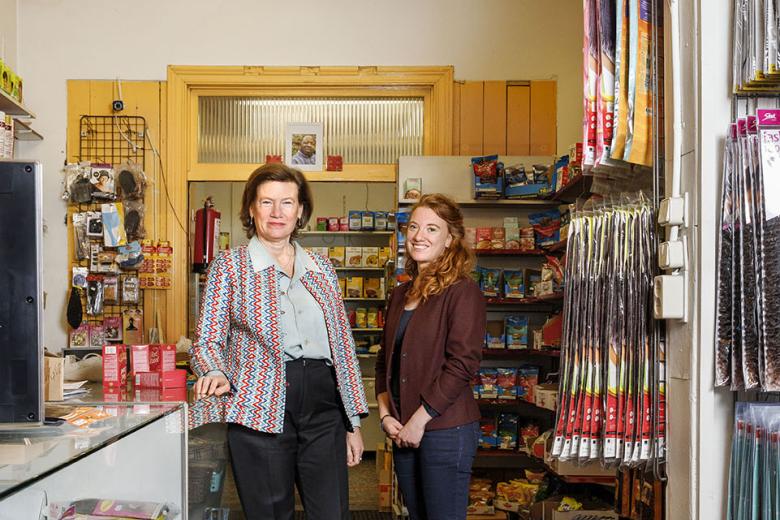The EU as peacemaker
It may come as a surprise that a core task of the European Union is to promote peace and security in crisis areas around the world. But why does it do this, and what is it aiming to achieve? According to research by Hylke Dijkstra and Petar Petrov, the EU works closely with international organisations on crisis missions, but by no means gets everything right. “The migration crisis only makes our recommendations more pertinent.”
You don’t have to be a Eurosceptic to wonder: why should the EU interfere in problems elsewhere, especially when there are organisations dedicated to doing exactly that (the United Nations, the Organization for Security and Co-operation in Europe)? Not to mention the EU’s full plate at home, with internal difficulties between member states, anti-European sentiment and, of course, the issue of migration. Yet still the organisation aspires to be a global player in world peace and security: the ambition is official policy, no less, laid down in the European Union Global Strategy.
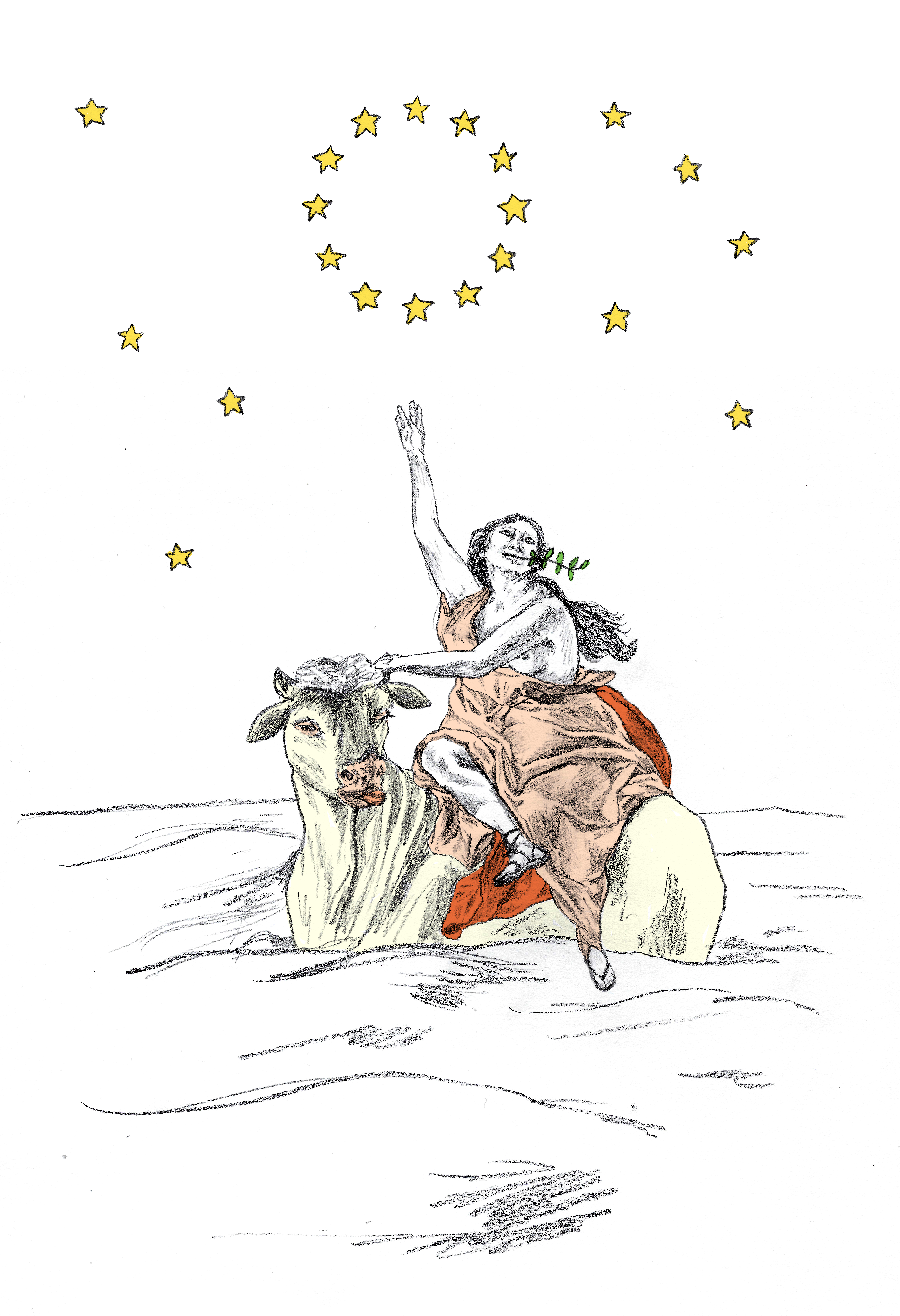
One answer is that the EU wants to protect its citizens, regardless of the location. “That’s the basis of the EU’s peace policy,” Dijkstra explains. “This is why it gets involved in crisis missions to Somalia and people smuggling in the Mediterranean. What is special is that its approach integrates all sorts of civilian domains, such as trade, the environment and energy.” “The EU wants to be seen as a civilian player,” Petrov adds. “And it manages to do so because it’s not regarded as an occupier.”
Civilising role
A deeper reason is that the EU wants to play a “civilising” role on the international stage. As Dijkstra and Petrov see it, this is the unique value of the EU. Petrov: “I come from Bulgaria, which, like the Balkan countries of Macedonia and Serbia, wants to join the EU precisely because of its civilising ideas. Citizens expect integration with Europe to improve society.” In addition, global issues surrounding food and water, cybersecurity and – yes – refugees can only be tackled collectively; something that bears reemphasising in these times of anti-European sentiment. “Europe offers its member states a platform to achieve more in the world.”
Cooperation pays off
Good intentions aside, the question is whether the EU is capable of playing this international role. In their recent project, Dijkstra and Petrov analysed the EU’s contribution to world peace and security. The focus lay on the development of civilian resources in the EU (such as police officers, judges and cyber specialists), and the exchange of these resources between the EU and international organisations like the UN and the OSCE. The project was unusually large in scale, with 11 international partner organisations and more than 25 researchers. Through interviews with policymakers in Brussels and stakeholders in the conflict areas, the researchers were able to arrive at a series of recommendations.
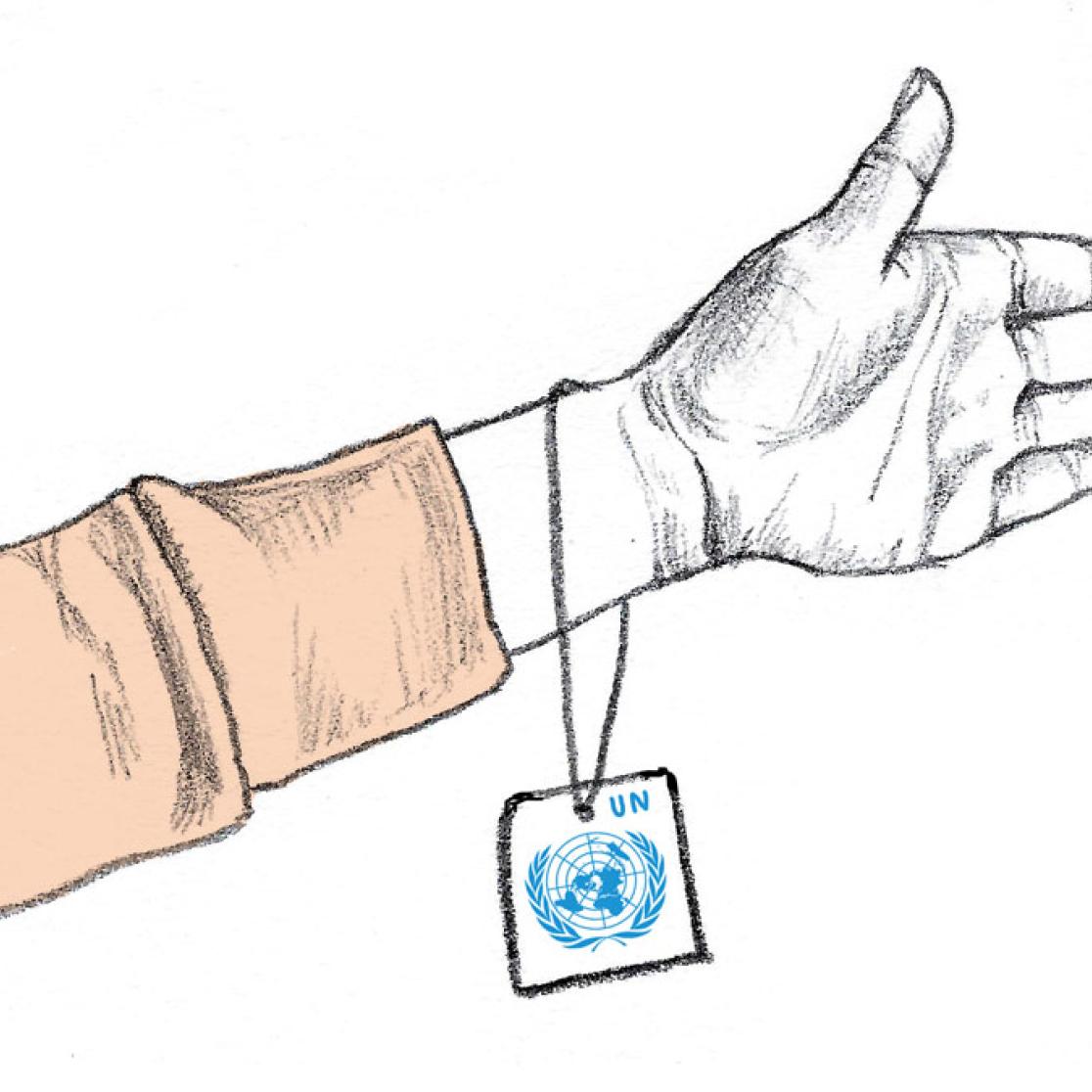
One of their findings is that the success of an EU mission depends greatly on how well the other organisations do their work. In short, cooperation pays off. This holds true both at an institutional and an informal level, Petrov explains. “It matters whether there are official agreements between organisations. In addition, informal agreements on the ground are crucial in order to perform core tasks. For instance, in Kosovo the EU makes ad-hoc use of NATO resources, although formally the two organisations operate independently.” In practice, international institutions often work at cross-purposes. One solution, the researchers suggest, would be to develop a joint strategic approach for conflict areas.
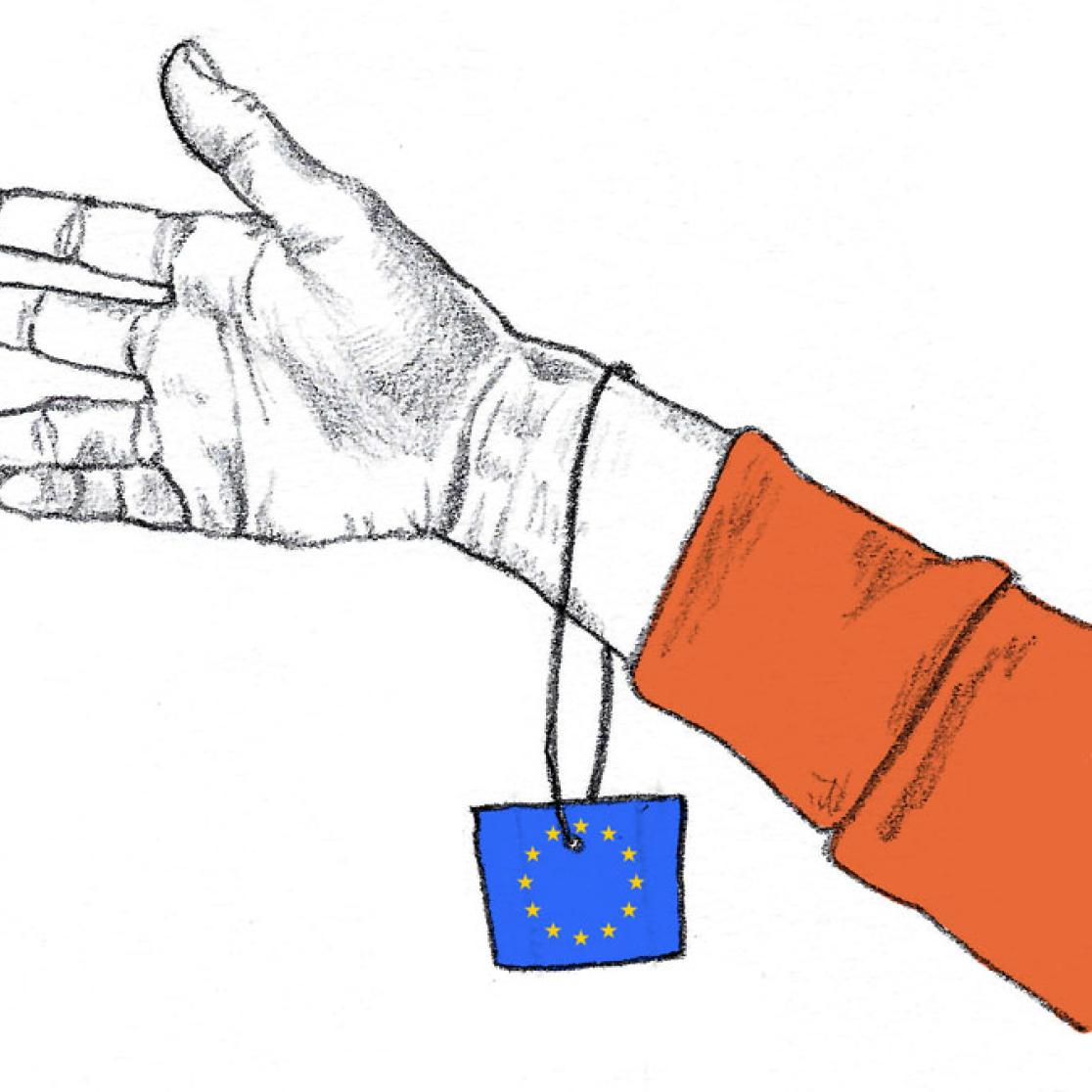
Lack of political will
Another shortcoming on missions is slow decision making and implementation, even when a rapid response is needed. This largely comes down to the lack of political will among member states. Dijkstra: “Instead of political will you see internal divisions, for example between ministries. Foreign Affairs thinks a mission to Ukraine is a good idea, Home Affairs disagrees.” The pair recommend creating a virtual pool of civilian resources, so the EU doesn’t have to constantly go knocking on the door of every member state. “A fixed unit would be able to organise funding and train and dispatch experts, making interventions faster and more professional.”
Migration crisis
The present migration crisis makes the researchers’ analysis and recommendations even more pertinent. “Migration is at the top of the agenda, but it’s also difficult for the EU to explain to its partners,” Dijkstra says. “After all, its focus is on doing good: peacebuilding and conflict management. But the migration problem also involves uncontrolled borders, organised crime, chaos and terrorism. It’s a fact that the stabilisation of countries and conflict areas results in less migration.”
Will the EU actually do something with their recommendations? The pair are convinced that their suggestions will trickle down into official policy documents. This is what happened with their previous recommendations, and this new report fits seamlessly with the EU’s recently revamped Civilian Capability Development Plan. “This plan spells out how the EU can promote peace and security from a civilian perspective,” Dijkstra explains. “Our report reflects on the issues to which the EU is urgently seeking answers. What do you do in crisis missions and how do you go about it?”
Hylke Dijkstra (1983) is programme director of the MA in European Studies at Maastricht University. He was previously a Marie Curie fellow at the Department of Politics and International Relations of the University of Oxford, where he was affiliated with Nuffield College. He has published widely on EU security, NATO and UN peacekeeping. Recently Dijkstra has been awarded a prestigious 1.5 million euro ERC Starting Grant to analyse the decline and death of international organisations.
Petar Petrov (1976) is a tenured assistant professor in International Relations and EU Foreign and Security Policy at Maastricht University. He was previously a visiting research fellow at the University of Manchester, where he analysed the EU’s state-building capacity in the context of its civilian missions in the Western Balkans. He publishes on EU crisis management and conflict prevention, European defence cooperation in capacity development, and strategic culture in security and defence.
Also read
-
Maastricht University and YERUN - A recap and a glimpse into 2024
Maastricht University is an active member of the Young European Research Universities Network, championing values of innovation, openess and responsibility.
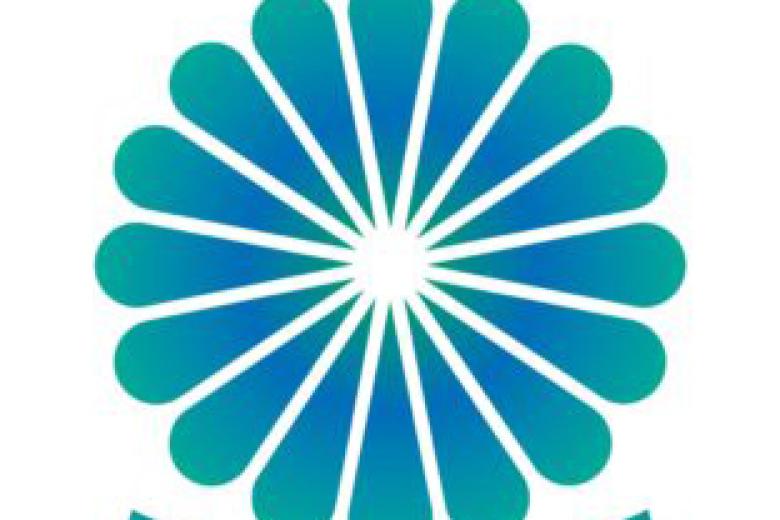
-
Empowering Smallholder Farmers in the Data Economy: Unlocking Opportunities and Overcoming Obstacles
Frederik Claasen, the head of policy at our partner organisation Solidaridad Network on the opportunities and obstacles facing smallholder farmers in their data ecosystems.
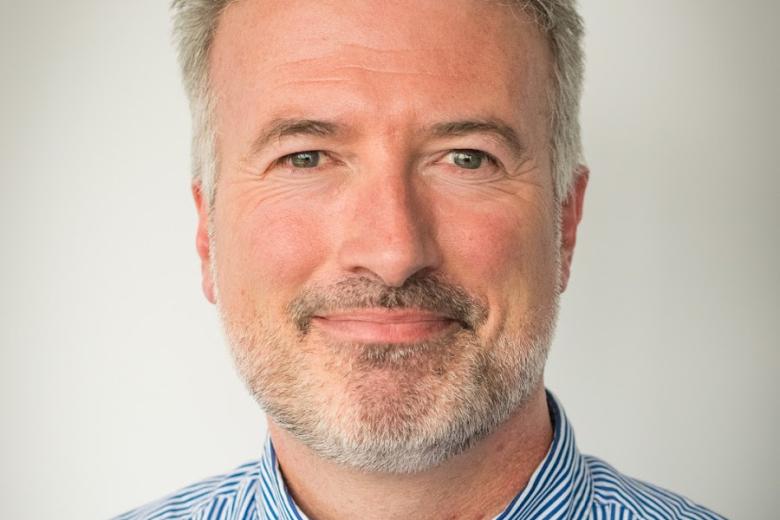
-
How do involuntarily returned migrants fare in Senegal?
The PhD research of Karlien Strijbosch focuses on Senegalese migrants who were forced to return home after a stay in Europe. Doing justice to such stories is no easy feat, especially when you come up against walls of silence, distrust and shame. Strijbosch and her supervisor Valentina Mazzucato...
